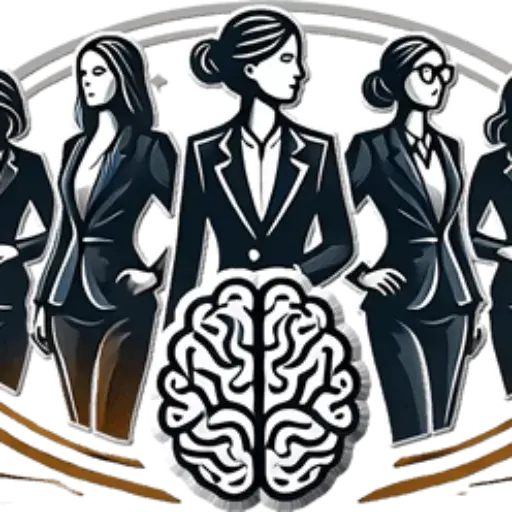Women's Mental Health Counselling Therapy for Acute Stress Disorder in Oakville
In Oakville, we’re here to support women facing the challenges of Acute Stress Disorder through specialized mental health counselling. We recognize how stress, traumas, and societal pressures can weigh heavily on us. Our tailored therapy focuses on empowering women, promoting emotional balance, and offering a safe space to explore and heal from difficult experiences. We emphasize trauma-informed care and use approaches like cognitive behavioral therapy and mindfulness to help manage symptoms and build resilience. If you’re seeking a supportive community and effective strategies for emotional wellness, you’ll find valuable insights and resources to guide your journey ahead.

About Women's Mental Health Counselling Therapy
Oakville Women’s Mental Health Counselling therapy focuses on addressing the unique emotional and psychological challenges that many women face throughout their lives. We recognize that women often encounter various stressors, from balancing work and family responsibilities to grappling with past traumas. This is where trauma-informed care becomes essential, providing a safe space for healing and personal growth.
In our sessions, we emphasize emotional support, helping each other navigate through feelings of anxiety and stress. We explore effective coping strategies tailored to individual needs, fostering resilience and empowerment. Whether it’s through psychotherapy for women or other mental health resources, our goal is to facilitate trauma recovery and enhance overall well-being.
Stress management techniques are integral to our approach, allowing us to develop healthier responses to life’s challenges. We often share insights on anxiety relief methods, grounding exercises, and mindfulness practices that can be beneficial. By engaging in women’s mental health counselling therapy, we’re not just addressing acute stress disorder; we’re building a supportive community where we can thrive together. Remember, seeking help is a sign of strength, and together, we can pave the way toward a healthier, more fulfilling life.
Exploring the Link Between Women's Mental Health and Acute Stress
Steering through the complexities of acute stress can deeply impact our mental health, and it’s vital to recognize how these experiences uniquely affect women at various stages of life. Women often face distinct challenges that can heighten psychological distress, such as emotional trauma related to caregiving, work-life balance, and societal expectations. Understanding this link is significant for effective mental health support.
Acute stress disorder can emerge from traumatic experiences, and we must prioritize trauma-focused therapy to address these issues. By acknowledging our emotional trauma, we can develop recovery strategies that promote resilience building and anxiety management. Techniques like mindfulness and breathing exercises are effective stress relief techniques that can help us regain a sense of control.
As we navigate these challenges together, it’s important to foster a supportive community where women feel empowered to seek help. By sharing our experiences and learning from one another, we can enhance our understanding of women’s mental health and the impact of acute stress. Let’s commit to prioritizing our well-being, utilizing available resources, and advocating for ourselves and each other in our journeys toward healing and recovery.
Identifying Key Symptoms and Indicators of Acute Stress Disorder
Recognizing the key symptoms and indicators of acute stress disorder is essential for us to effectively support ourselves and each other during challenging times. We might experience various stress symptoms that can manifest in different ways. Emotional distress often surfaces as feelings of anxiety, sadness, or irritability. Some of us may also encounter panic attacks, which can leave us feeling overwhelmed and frightened.
Nightmares can disrupt our sleep, causing further fatigue and emotional numbness. Hypervigilance, or an increased state of alertness, may lead us to constantly scan our environment for potential threats, making it hard to relax. We should also pay attention to trauma triggers that can evoke distressing memories, prompting avoidance behavior as a coping mechanism.
It’s crucial to recognize these indicators, as understanding them can empower us to seek help. Grounding techniques, such as deep breathing or mindfulness exercises, can be beneficial in managing these symptoms. By acknowledging and discussing our experiences, we can create a supportive environment that fosters healing and resilience, helping us navigate the complexities of acute stress disorder together.
Understanding the Root Causes and Triggers of Acute Stress in Women
Understanding the factors that contribute to acute stress in women helps us address the complexities of our experiences and find effective ways to cope with the challenges we face. Many of us encounter trauma—whether it’s from personal loss, grief, or ongoing stress overload—that triggers our stress response. Recognizing these triggers is fundamental for our psychological health and emotional trauma recovery.
For women, the root causes of acute stress disorder often stem from societal pressures, relationship dynamics, or significant life changes. We might experience heightened sensitivity to stress due to past experiences, making it important to identify the underlying factors that exacerbate our emotional responses. Our experiences of grief and loss can create a ripple effect, intensifying feelings of anxiety and helplessness.
Women’s mental health support plays an essential role in this journey. By fostering an understanding of our unique triggers, we can develop strategies that promote healing and resilience. Together, we can explore these aspects, allowing us to reclaim our emotional well-being and navigate the complexities of acute stress more effectively.

How Mental Health Counseling Supports Recovery from Acute Stress
Mental health counseling serves as an essential lifeline for us as we navigate the tumultuous waters of acute stress, providing the tools and support necessary for healing and recovery. Through trauma therapy, we can begin to address the underlying issues contributing to our acute stress disorder. It’s in this safe space that we learn about emotional resilience, allowing us to face our challenges with renewed strength.
In our sessions, we explore various coping mechanisms that help us manage overwhelming emotions. Techniques like relaxation exercises and mindfulness-based therapy empower us to stay grounded, promoting effective stress reduction. Supportive therapy further enhances our journey, creating an environment where we feel understood and validated.
Psychotherapy also plays a significant role in our recovery, helping us process our experiences and develop healthier thought patterns. As we engage in these therapeutic practices, we build a toolkit that fosters not only recovery but also long-term well-being. By embracing mental health counseling, we’re not just surviving; we’re learning to thrive in the face of life’s challenges, transforming our pain into a path toward healing.
The Role of Cognitive Behavioral Therapy (CBT) in Treating Acute Stress
Cognitive Behavioral Therapy (CBT) offers us valuable strategies to reframe our thoughts and behaviors, enabling us to effectively cope with the distress that acute stress can bring. By focusing on the connection between our thoughts, feelings, and actions, we can better understand how our fear response escalates during moments of acute stress disorder.
CBT often incorporates techniques like exposure therapy, which gently introduces us to our fears in a controlled environment, helping us to desensitize and regain control. This approach fosters emotional regulation, allowing us to respond to stressors with greater resilience.
Additionally, mindfulness practices integrated within CBT help us stay grounded in the present, reducing anxiety and enhancing our overall mental health. Through short-term therapy sessions, we can engage in behavioral therapy that empowers us to adopt healthier thought patterns and coping mechanisms.
As we journey through trauma recovery programs, the insights and skills gained from CBT not only alleviate symptoms but also promote lasting change. Together, we can navigate the challenges of acute stress, fostering hope and healing in our lives.
Providing Trauma-Informed Care for Women Facing Acute Stress
Many of us recognize the importance of providing trauma-informed care for women facing acute stress, as it fosters a safe and supportive environment that acknowledges the impact of trauma on mental health. When we engage in women’s counseling services, we prioritize emotional health and psychological well-being, ensuring that each woman feels seen and heard.
In our approach to trauma healing, we focus on understanding the unique experiences that women face, integrating gender-specific therapy into acute stress disorder treatment. This approach not only aids in emotional recovery but also promotes effective stress relief strategies. We encourage the use of mindfulness meditation, which has proven to be a valuable tool in fostering a sense of calm and clarity amidst emotional turmoil.
Developing Emotional Regulation Skills to Manage Acute Stress
Building on our understanding of trauma-informed care, developing emotional regulation skills is essential for helping women effectively manage acute stress and regain control over their emotional responses. By focusing on emotional well-being, we can create a supportive environment where women feel safe to explore their feelings and experiences.
In counseling for women, we emphasize self-awareness, encouraging individuals to identify their triggers and emotional responses. This understanding fosters mood stabilization, allowing us to respond to anxiety in healthier ways. Through holistic therapy approaches, we can integrate mindfulness practices, breathing techniques, and cognitive behavioral strategies to enhance stress management.
As we work together on emotional regulation, we also promote personal growth. This journey not only helps in coping with acute stress disorder but also nurtures mental wellness in the long term. By cultivating these skills, we empower women to navigate their emotional landscape with confidence and resilience.
Ultimately, our goal is to support each other in developing the tools needed for emotional regulation, enhancing our collective ability to thrive in the face of adversity. Together, we can embrace a path toward healing and emotional mastery.
Effective Stress Management Strategies for Women with ASD
Steering through life with Acute Stress Disorder (ASD) can feel overwhelming at times, but we can implement effective stress management strategies that empower women to reclaim their sense of calm and control. First, we should prioritize self-care, ensuring we carve out dedicated time for activities that nurture our emotional health. This can include mindfulness practices, like meditation or yoga, which help ground us during moments of anxiety.
Engaging in women’s therapy or anxiety counseling can also be indispensable. These sessions provide a safe space to explore our feelings and develop resilience. Additionally, building a supportive network of friends and family can make a significant difference. Sharing our experiences fosters connection and understanding, which are essential for our mental health.
We should also consider holistic wellness approaches, such as nutrition and exercise, which play important roles in regulating our stress levels. Finding balance in our lives is key to overcoming the challenges of acute stress disorder while preventing the potential development of post-traumatic stress. By embracing these stress management strategies, we can cultivate a healthier mindset and enhance our overall well-being. Together, we can navigate this journey towards better emotional health.

Holistic Therapy Approaches to Support Acute Stress Recovery
In our journey toward recovery from Acute Stress Disorder, exploring holistic therapy approaches can offer valuable support for restoring balance and well-being. Holistic therapy emphasizes treating the whole person, addressing not just symptoms but also emotional and spiritual aspects of women’s emotional health. This integrative approach can empower us in our healing process, helping to rebuild self-worth and resilience.
Practices such as mindfulness, yoga, and meditation can greatly reduce anxiety disorders, allowing us to reconnect with our bodies and emotions. These techniques foster a sense of wellness and help us process grief, especially if we’re dealing with relationship issues or significant life changes.
Additionally, incorporating nature therapy or art therapy can provide creative outlets for expression and healing, further enhancing our mental health advocacy efforts. By engaging in these holistic practices, we cultivate a supportive environment that encourages self-discovery and personal growth.
Ultimately, embracing holistic therapy approaches equips us with the tools and strategies needed to navigate our recovery journey. It’s a step toward empowerment, guiding us toward a balanced life filled with hope and renewed purpose.
Navigating Relationships with Counseling During Acute Stress
Steering relationships during acute stress can feel overwhelming, but seeking counseling together can provide the support we need to strengthen our connections and foster understanding. When we experience acute stress disorder, it’s common to face flashbacks and intrusive thoughts that disrupt our daily lives and relationships. Together, we can navigate these challenges through relationship counseling, focusing on effective stress management techniques.
By addressing our individual and shared experiences, we can better understand how our nervous systems react to stressors. This awareness helps us cope with sleep disturbances and other symptoms that may arise during short-term stress periods. For women, particularly those dealing with maternal mental health issues, it is crucial to engage in open communication about our feelings and needs.
Counseling can guide us in developing healthier coping mechanisms, allowing us to support each other more effectively. Together, we’ll learn how to foster resilience, enhancing our emotional bonds and ensuring we’re not alone in facing our struggles. This journey not only strengthens our relationships but also empowers us to manage women’s issues more confidently. In the end, we’re not just surviving; we’re thriving together.
The Importance of Group Therapy and Peer Support for Women
Group therapy and peer support can be life-changing for women, offering a safe space where we can share our experiences and feel understood. These settings provide a unique opportunity to connect with others who face similar challenges, such as acute stress disorder, PTSD, and various mood disorders. We often find that simply knowing we’re not alone in our struggles can greatly alleviate feelings of depression and anxiety.
Participating in women’s support groups fosters women’s empowerment, allowing us to explore identity issues and navigate life changes together. The collective wisdom and encouragement we share can help us gain new perspectives, making it easier to cope with our mental health challenges.
Moreover, peer support can bridge the gap between traditional mental health counseling and personal experience, creating a holistic approach to healing. We learn from each other’s journeys, sharing strategies and insights that can be invaluable in our recovery. By building a strong network of understanding and compassion, we not only enhance our emotional resilience but also cultivate a sense of belonging that’s vital for our mental well-being. Together, we can uplift one another and foster a healthier, more supportive community.
The Value of Early Intervention and Parenting Guidance in ASD Recovery
Recognizing the significance of early intervention and effective parenting guidance can greatly enhance recovery for those facing autism spectrum disorders (ASD). We acknowledge that the journey can be overwhelming, especially for mothers who may be grappling with their own acute stress disorder or post-traumatic stress disorder. Addressing perinatal mental health is essential, as it directly impacts maternal health and the ability to nurture our children.
Through early intervention, we can identify and implement depression treatment strategies that support both the child and the family unit. It’s imperative to create an environment where women feel empowered, fostering a sense of agency in their parenting journey. Family counseling can provide essential tools for improving work-life balance and addressing issues like body image, which often affect a mother’s well-being.
Strategies for Building Resilience and Strengthening Coping Skills
Building resilience and strengthening coping skills are essential steps we can take together to navigate the challenges of motherhood, especially when facing mental health hurdles. To support each other through acute stress disorder, we can start by embracing women’s empowerment. By sharing our experiences and knowledge, we create a safe space for open dialogue.
Developing effective coping skills is vital. Techniques such as mindfulness, journaling, and physical activity not only help alleviate symptoms of depression but also promote hormonal balance and overall reproductive mental health. Incorporating anger management strategies can be particularly beneficial, allowing us to express our emotions constructively.
Utilizing gender-focused therapy can enhance our understanding of the unique pressures we face. This tailored approach fosters resilience by addressing the specific challenges women encounter, helping us combat feelings of burnout and isolation.
Let’s remember that building resilience is a collective journey. By supporting one another, we can enhance our coping skills and equip ourselves with the tools needed to face adversity. Together, we’ll navigate the complexities of motherhood, fostering a nurturing environment for our mental well-being.
Steps to Restore Emotional Wellness After Acute Stress
Restoring our emotional wellness after experiencing acute stress involves taking intentional steps that prioritize self-care and connection with others. We may find ourselves steering through the aftermath of acute stress disorder, where feelings of dissociation can linger. It’s essential to recognize our fight-or-flight response and actively work to calm our minds and bodies through practices like mindfulness or cognitive-behavioral therapy (CBT).
Engaging in gender-focused therapy can empower us to address the unique challenges women face, including postpartum depression, which may also arise during this time. As we rebuild our self-esteem, we should remember that reaching out for support is not a sign of weakness but a significant step toward healing.
Participating in marriage counseling can further enhance our emotional wellness by fostering open communication and intimacy with our partners. We should also embrace community support, connecting with other women who share similar experiences. By prioritizing our emotional wellness through these steps, we not only heal but also empower ourselves and each other, paving the way for a more resilient future. Together, we can reclaim our emotional balance and thrive beyond acute stress.
Moving Forward: Empowering Women to Reclaim Emotional Balance in Oakville
Often, we find ourselves seeking ways to reclaim our emotional balance, especially in a community like Oakville that understands the unique challenges women face. At 123 ABC Road in Oakville, Ontario, we can access support tailored to our needs, focusing on women’s empowerment and healing.
When dealing with acute stress disorder or an acute stress reaction, it’s crucial to recognize our startle response and how it impacts our daily lives. Many of us may also struggle with eating disorders, which can stem from the pressures we face. By engaging in gender-focused therapy, we can create a safe space to explore these issues together.
We all deserve a chance to heal and move forward. By reaching out for help, we empower ourselves and each other. If you’re feeling overwhelmed, don’t hesitate to call 111-111-1111 for guidance. Together, we can foster resilience and reclaim our emotional well-being, maneuvering the complexities of our experiences as women in Oakville. Let’s support one another on this journey towards balance and fulfillment.
About Town of Oakville
In our journey towards emotional well-being, it’s important to appreciate the vibrant community of Oakville, where the blend of natural beauty and supportive resources creates an inviting environment for women seeking healing and empowerment. Nestled along the shores of Lake Ontario, Oakville offers a picturesque setting that encourages tranquility and reflection. The lush parks, serene waterfront, and friendly neighborhoods foster a sense of belonging, making it a wonderful place for women to connect with one another and find solace in shared experiences.
Moreover, Oakville is home to a variety of mental health services specifically tailored to support women’s needs. From specialized counseling to wellness workshops, these resources empower us to navigate our emotional challenges with confidence. We can easily access knowledgeable professionals who understand the complexities of acute stress disorder and are dedicated to helping us reclaim our emotional balance.
In this supportive atmosphere, we can embrace our vulnerabilities and work towards healing, knowing that we’re not alone. Together, as a community, we can cultivate resilience and growth, fostering a brighter future for all women in Oakville.

Frequently Asked Questions
What Qualifications Should I Look for in a Mental Health Counselor?
When we’re seeking a mental health counselor, we should look for someone with relevant qualifications, such as a degree in psychology or social work, and appropriate licensing. It’s also helpful if they’ve specialized training in our specific concerns. We can benefit from counselors who have experience with trauma or anxiety. Finally, a good fit for us includes someone who demonstrates empathy and understanding, making us feel safe and supported throughout our journey.
How Long Does Therapy Typically Last for Acute Stress Disorder?
When it comes to therapy for acute stress disorder, we often find that the duration can vary considerably based on individual needs and circumstances. Typically, therapy may last anywhere from a few weeks to several months. It’s important for us to remember that healing is a personal journey, and the focus should be on progress rather than a strict timeline. We’re here to support one another through this process, no matter how long it takes.
Are There Specific Therapies Tailored for Women Dealing With Acute Stress?
Absolutely, there are specific therapies designed for women experiencing acute stress. We often find that trauma-focused cognitive behavioral therapy (CBT) and eye movement desensitization and reprocessing (EMDR) are particularly effective. These approaches not only address the symptoms but also consider the unique experiences women face. We believe it is crucial to create a supportive environment where women can heal, share their stories, and develop coping strategies tailored to their individual needs.
Can Medication Be Used Alongside Counseling for Acute Stress Disorder?
Absolutely, medication can be used alongside counseling for acute stress disorder. Many of us find that combining therapy with medication helps manage symptoms more effectively. It’s important to remember that each person’s journey is unique, so working closely with a healthcare provider to find the right balance is key. Together, we can explore options that support our healing process, ensuring we feel empowered and understood throughout this challenging time.
How Do I Know if I Need Counseling for My Acute Stress Symptoms?
When we start feeling overwhelmed by our emotions, struggling with daily activities, or noticing physical symptoms like headaches or insomnia, it might be time to reflect on counseling. If we’re finding it hard to cope, or if our relationships are suffering, reaching out for help can be a positive step. It’s important to trust our instincts; if we’re feeling stuck or lost, talking to a professional can provide the support we need.

